Teenagers typically spend their adolescent years seeking their first job, and with a first job comes their first real source of income. Helping teens find a secure place to save and spend this income is an excellent opportunity to teach financial responsibility and some money management lessons along the way.
Discovering Checking vs. Savings Accounts
Checking Accounts: This type of account holds money attached to a debit card and is spent like cash when making an in-store or online purchase. Debit cards also allow teens to access ATMs taking cash straight from their account.
Savings Account: Money is held in this account so as not to be accidentally spent or used the same way as a checking account. A savings account is oftentimes a financial safety net used to access future unexpected expenses or bigger purchases.
Tracking Expenses and Mastering the Budget
Unlike cash, opening an account with a Federal Credit Union allows teens to watch the physical total of their money go up or down depending on their spending habits. A federal credit union also allows them to see where they spend their money and how much is spent in each location. This is a fantastic way for teens to check if they have any unauthorized purchases, how much money they’re spending vs. what they’re making, and if they need to put a monthly budget in place for themselves.
Understanding Fees
If this is a teen’s first time signing up for a credit union and opening any kind of financial account, chances are they’re not too familiar with the different fees they could find themselves charged with.
Overdraft Fees: Both credit unions and banks charge overdraft fees when consumers make purchases over the amount available to spend in their account. If the charge is allowed to go through, then an overdraft fee is set in place to accommodate the convenience for letting the charge go through.
Inactivity Fees: If members do not make a qualifying transaction (a deposit or withdrawal) from their account after 365 days a monthly $5.00 fee is charged. Otherwise, GNFCU charges no monthly fees to their accounts!
Today at Greater Niagara Federal Credit Union, anyone who works, worships, attends school or conducts business in Erie or Niagara County is eligible to sign up for a membership, and we encourage teens to start their financial education with us.







